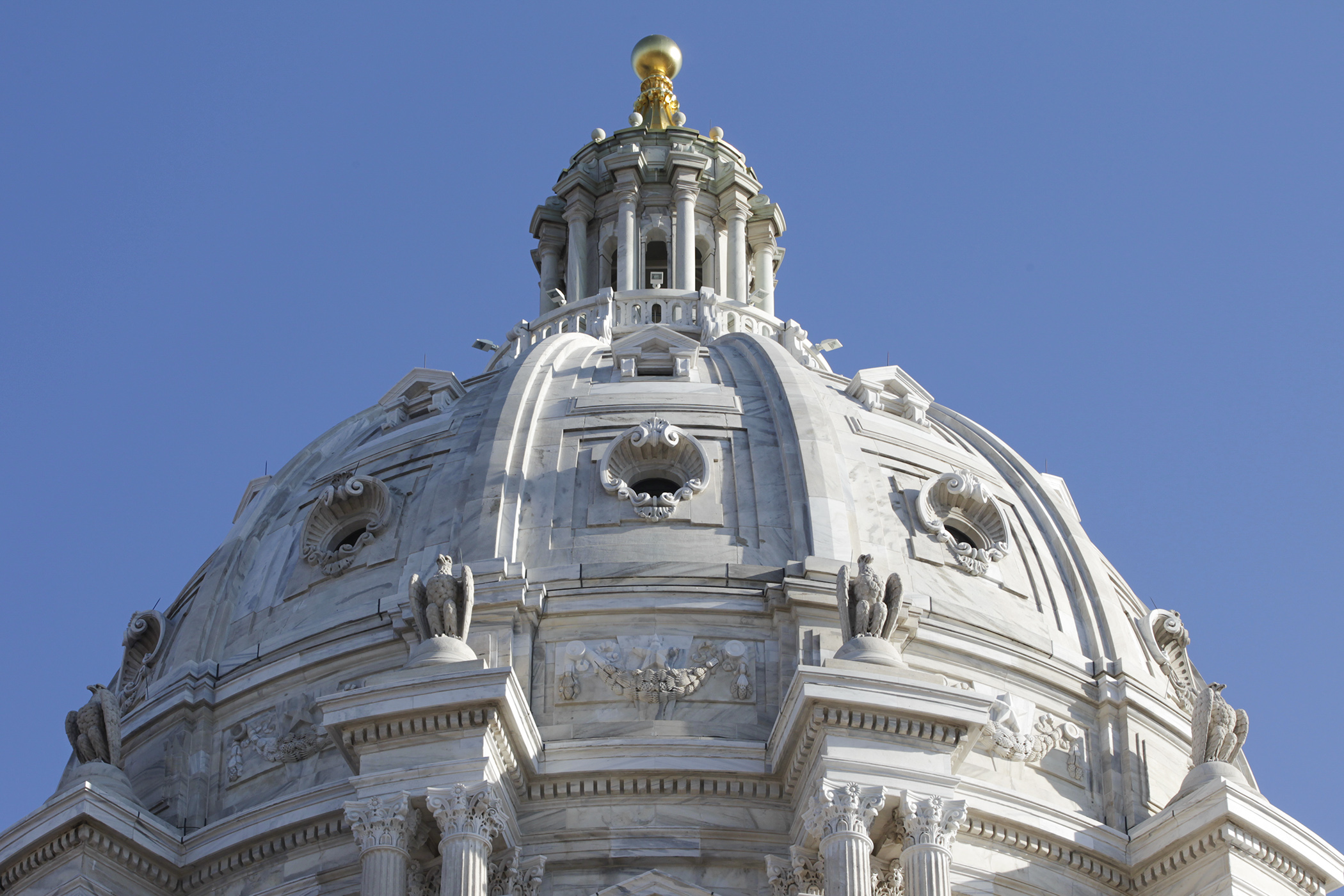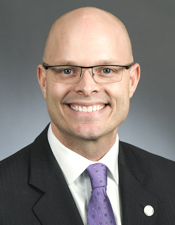Could state’s surplus smooth way for eliminating taxes on Social Security benefits?

Is a state tax on a portion of Social Security benefits a fiscal necessity or the impetus for a mass exodus of retired Minnesotans? Is Minnesota a great place to spend your golden years because of its ample safety net or does it have an out-of-touch tax policy that makes Minnesota an outlier among states?
And what would happen if the state did away with its taxes on Social Security benefits altogether? It depends upon whom you ask.
On Wednesday, the House Taxes Committee discussed two identical bills that would create an unlimited subtraction for Social Security income, and laid over each for possible inclusion in an omnibus taxes bill.
Under HF2788, sponsored by Rep. Dave Lislegard (DFL-Aurora), the entire amount of Social Security benefits received by a taxpayer during the tax year would be allowed as a subtraction, to the extent included in federal taxable income.
Sponsored by Rep. Tony Jurgens (R-Cottage Grove), HF26, as amended, is identical in wording. Despite being introduced in January 2021, the bill hadn’t received a hearing until Wednesday. But that’s more than can be said for a bill of similar vintage. Its companion, SF56, sponsored by Sen. Michael Goggin (R-Red Wing), awaits action by the Senate Taxes Committee.
The companion for Lislegard’s bill is SF2838, sponsored by Sen. Tom Bakk (I-Cook), which also has been referred to the Senate Taxes Committee.
Whenever the idea of eliminating taxes on Social Security benefits is broached, the inevitable question has been: How much would that cost?
The Department of Revenue estimates that the change would reduce General Fund revenue by $509.6 million in fiscal year 2023, $547.3 million in fiscal year 2024, and $578.6 million in fiscal year 2025.
The department estimates that about 406,600 tax returns would be affected in tax year 2022, with an average decrease in tax of $1,253.
State law allows Minnesota taxpayers to subtract a portion of their benefits that are taxable federally. For married taxpayers filing joint returns or surviving spouses, the maximum subtraction is $5,450; for other taxpayers, $4,260. No matter the filing status, a phaseout begins at $82,770 of provisional income.
“Our state’s seniors have paid into Social Security their whole working lives,” Lislegard said. “Now that they’ve retired, we tax them. I hear from seniors who are dumbfounded. … The reason that we haven’t done this before is that it’s a big financial hit. But, with a $9.2 billion surplus, cost shouldn’t be a barrier. I’m confident that if we did this, more seniors would stay in Minnesota.”
“We’re one of only 12 states that taxes Social Security benefits,” Jurgens said. “This isn’t the only reason retirees leave Minnesota, but why give them any reason? We can eliminate the tax and put the money in their pockets to spend in the state.”
The committee chair, Rep. Paul Marquart (DFL-Dilworth), noted there are four other bills that contain the same language.
But more testifiers spoke against the bill than in favor.
“Eliminating taxes on Social Security benefits is targeted tax relief,” said Mark Haveman, executive director of the Minnesota Center for Fiscal Excellence. “And the target, in this case, is Minnesota’s highest-earning seniors. According to [nonpartisan] House Research, less than half of the state’s Social Security recipients pay taxes on their benefits. If the purpose is to keep higher-income residents in state, exempting Social Security is unlikely to stop them from leaving. … Retention bang for the buck would be minimal, if it would exist at all.”
The bills inspired a robust debate in the committee, with one of the central questions being whether taxes on Social Security benefits qualify as “double taxation.” Rep. Pat Garofalo (R-Farmington) contends it is, as employees pay into the Social Security system through their paychecks, then are taxed on the benefits they receive after retirement.
Marquart countered that only a small percentage of what employees pay in is included in a retiree’s eventual benefits, and the money is part of a larger fund that has collected interest over time.
Garofalo asked if there was a possibility one of the bills could be voted upon as a standalone measure on the House Floor, rather than being considered as part of a larger omnibus bill. Marquart replied that there would be no more standalone bills coming out of the committee this session.
Related Articles
Search Session Daily
Advanced Search OptionsPriority Dailies
Speaker Emerita Melissa Hortman, husband killed in attack
By HPIS Staff House Speaker Emerita Melissa Hortman (DFL-Brooklyn Park) and her husband, Mark, were fatally shot in their home early Saturday morning.
Gov. Tim Walz announced the news dur...
House Speaker Emerita Melissa Hortman (DFL-Brooklyn Park) and her husband, Mark, were fatally shot in their home early Saturday morning.
Gov. Tim Walz announced the news dur...
Lawmakers deliver budget bills to governor's desk in one-day special session
By Mike Cook About that talk of needing all 21 hours left in a legislative day to complete a special session?
House members were more than up to the challenge Monday. Beginning at 10 a.m...
About that talk of needing all 21 hours left in a legislative day to complete a special session?
House members were more than up to the challenge Monday. Beginning at 10 a.m...

